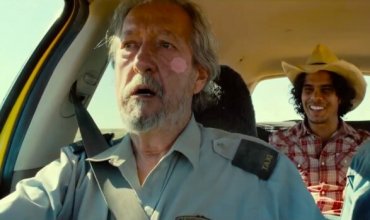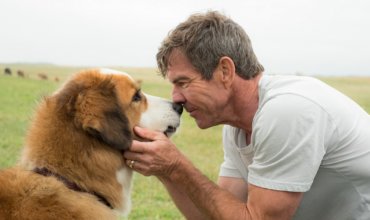The second instalment of the Harry Potter spin-off franchise, Fantastic Beasts: The Crimes of Grindelwald, takes magizoologist Newt Scamander (Eddie Redmayne) to London and Paris on orders from Albus Dumbledore (Jude Law) to hunt down the obscurial Credence Barebone (Ezra Miller). Newt is joined once again by no-maj baker Jacob Kowalski (Dan Fogler), femme fatale Queenie Goldstein (Alison Sudol), and her sister and Newt’s vague love interest Tina Goldstein (Katherine Waterston). Meanwhile, Gellert Grindelwald (Johnny Depp) is gathering followers for his anti-muggle supremacy movement. Fantastic Beasts: The Crimes of Grindelwald is directed by David Yates from the screenplay by J.K. Rowling.
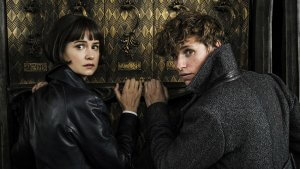
Diehard Potterheads will find it very exciting to return to Hogwarts and see some familiar names and (much younger) faces. The nostalgia of the swooping shot of Hogwarts castle, the familiar bridge and dining hall set to the tinkling theme, will be enough to sustain fans throughout an ungainly plot. The film is visually pleasing and suitably moody. The magical creatures are fewer and, while still cute and cuddly, less affronting than in the original.
Unfortunately, this sequel is a case of Harry Potter and the Curse of the Trilogy – the second film is always going to be a somewhat empty build-up to the epic battle in the third and final instalment. The problem is, there’s a lot of backstory and exposition delivered through intense monologue and flashbacks. The film sets up a red herring moments before shooting it down like a barn owl, meaning it is ultimately pointless. With so many interwoven plots stretching into the past and future, it’s difficult to decide whose story it is. A simple misunderstanding, fickle characters, and near misses make for a frustratingly tenuous and thin plot.
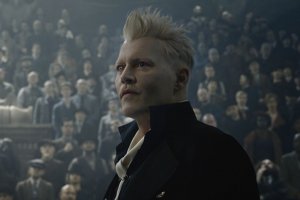
The inconsistency of magic within the world is confusing. Had the spin-off been written as a book series first, and then translated into film, the dense theory and backstory of the world could have been somewhat overlooked in the films. Similarly, there’s enough information to have stretched the film out into several instalments, if each backstory was to be given the same attention as in the original Harry Potter series.
All the characters have been rounded out and made real, as has the wizarding world. Grindelwald is arguably a better villain than Voldemort, as he is more human, his propaganda more compelling and his followers more like everyday people sucked down the slippery slope of radicalism. While we saw little of him in the first film, Depp comes into his own playing Johnny Depp playing Grindelwald, a highly aesthetic (thought problematic) villain. While Jude Law is a great actor, it’ll be up to the individual viewer to decide whether he pulls off a young Dumbledore – though he is every bit as devious and interfering as Michael Gambon’s bespectacled headmaster. Either the writer’s or the director’s refusal to portray anything mildly sensual or gay between Grindelwald and Dumbledore, leaving just heavy canonical subtext, is disappointing but not surprising.
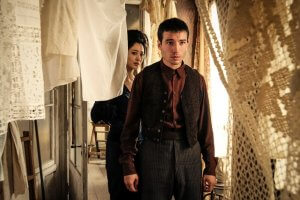
This film will undoubtedly spark fan- and critic-written articles about some of its more iffy moments, including the problematic nature of Jacob and Queenie’s relationship, and the casting of South Korean actress Claudia Kim as Indonesian maledictus Nagini.
While it’s nice to see more of the wizarding world, like I said in my review of the first Fantastic Beasts, the sheer depth and complexity makes Harry’s issues pale in comparison. The success of Rowling’s original series will forever be the mark of comparison for her future works. Rowling has done well, however, to adapt the wizarding world into one for a present day and now much older audience that grew up with Harry Potter.
I rate this film 6/10.
Fantastic Beasts: The Crimes of Grindelwald is in Australian cinemas from 15th November.

